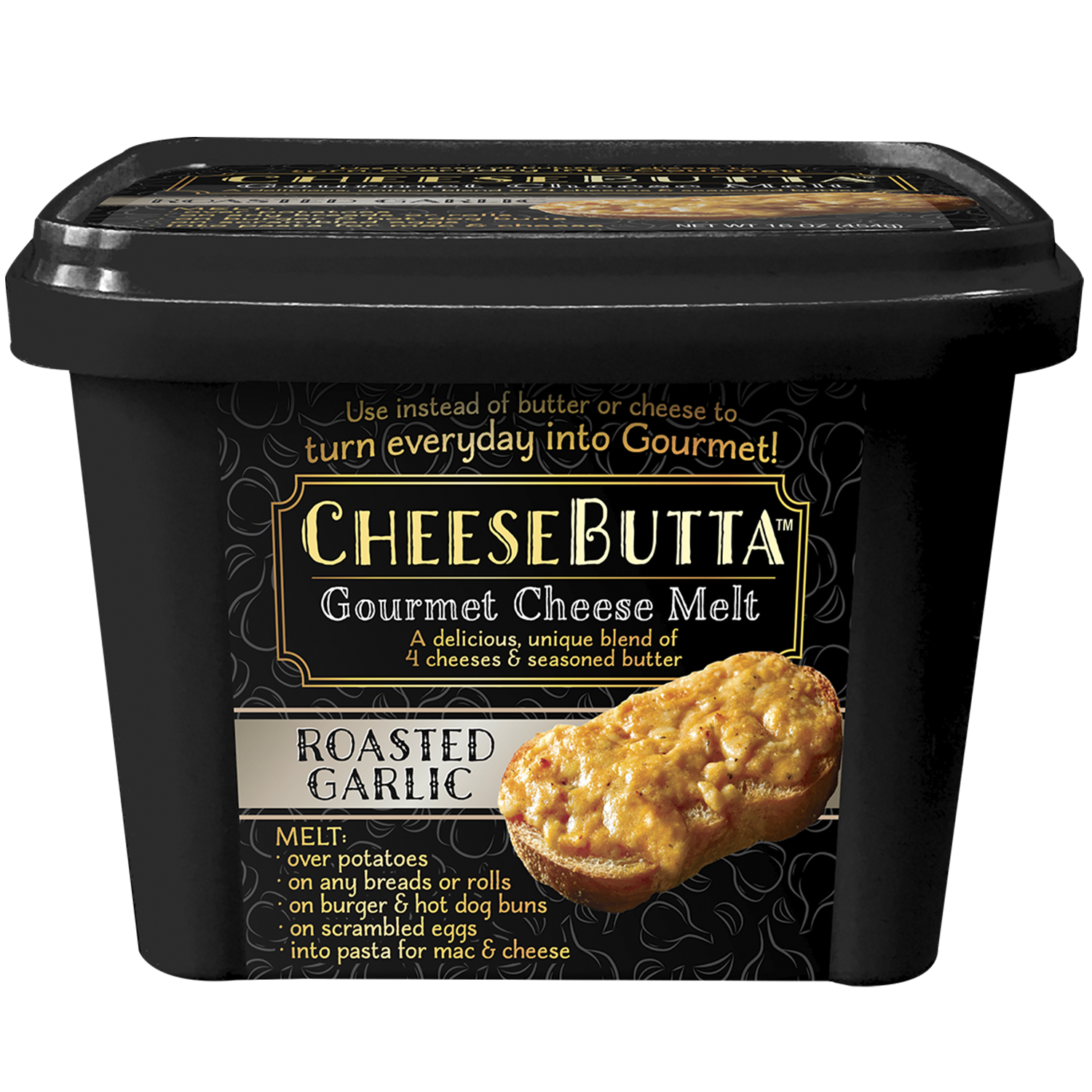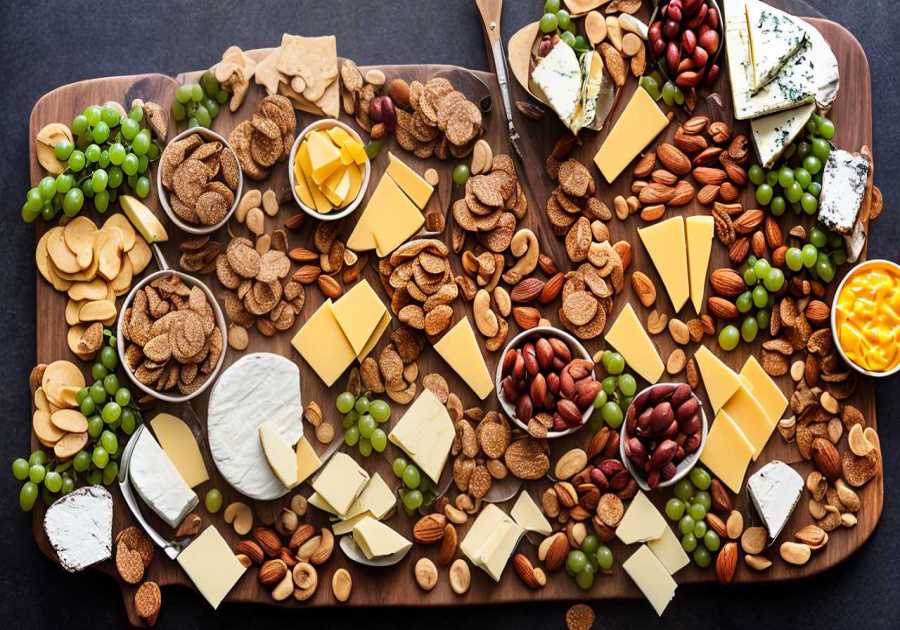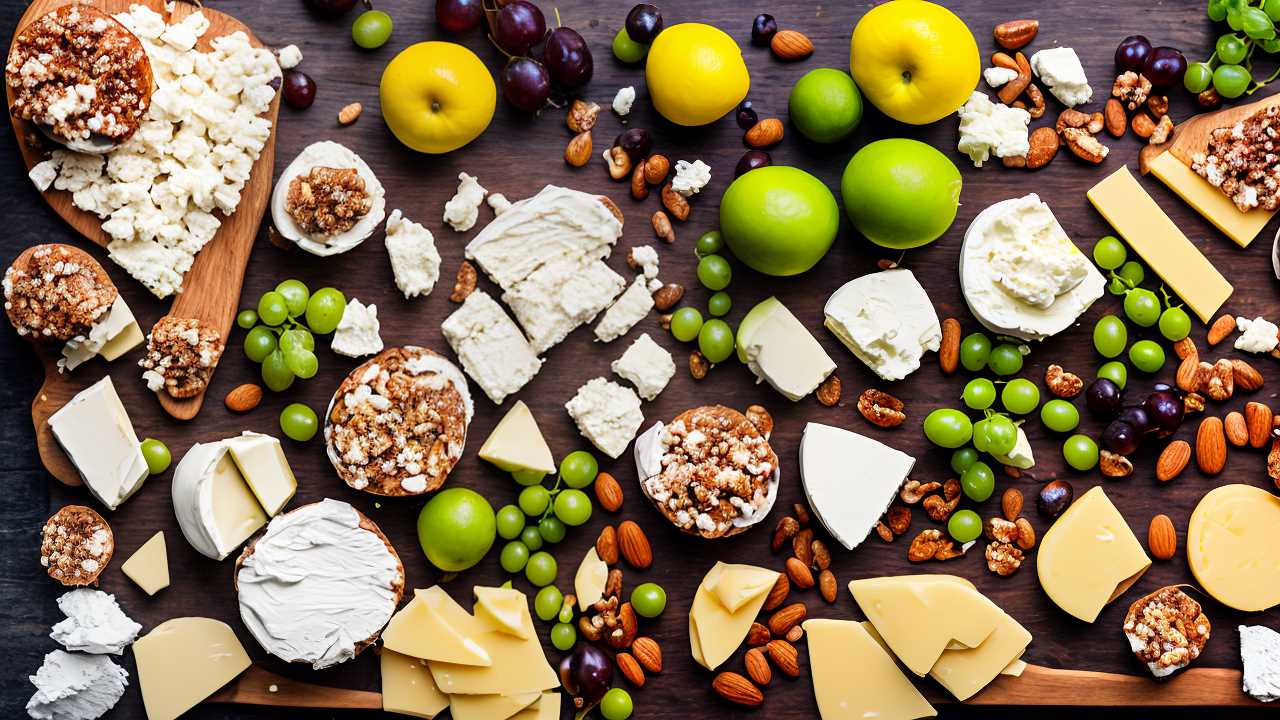
What Is a Low Calorie Cheese for Snacks?
When you're looking for a low-calorie cheese for snacking, cottage cheese and part-skim mozzarella are excellent choices. Cottage cheese is not only versatile and high in protein but also pairs wonderfully with fruits, making it a filling, nutritious snack. Part-skim mozzarella, on the other hand, is lower in fat and a great addition to salads or melted on veggies. Both options help manage your calorie intake while providing essential nutrients like calcium and protein, which are vital for bone health and muscle repair. Exploring various combinations and preparations can enhance your snacking experience and bolster your nutritional intake.
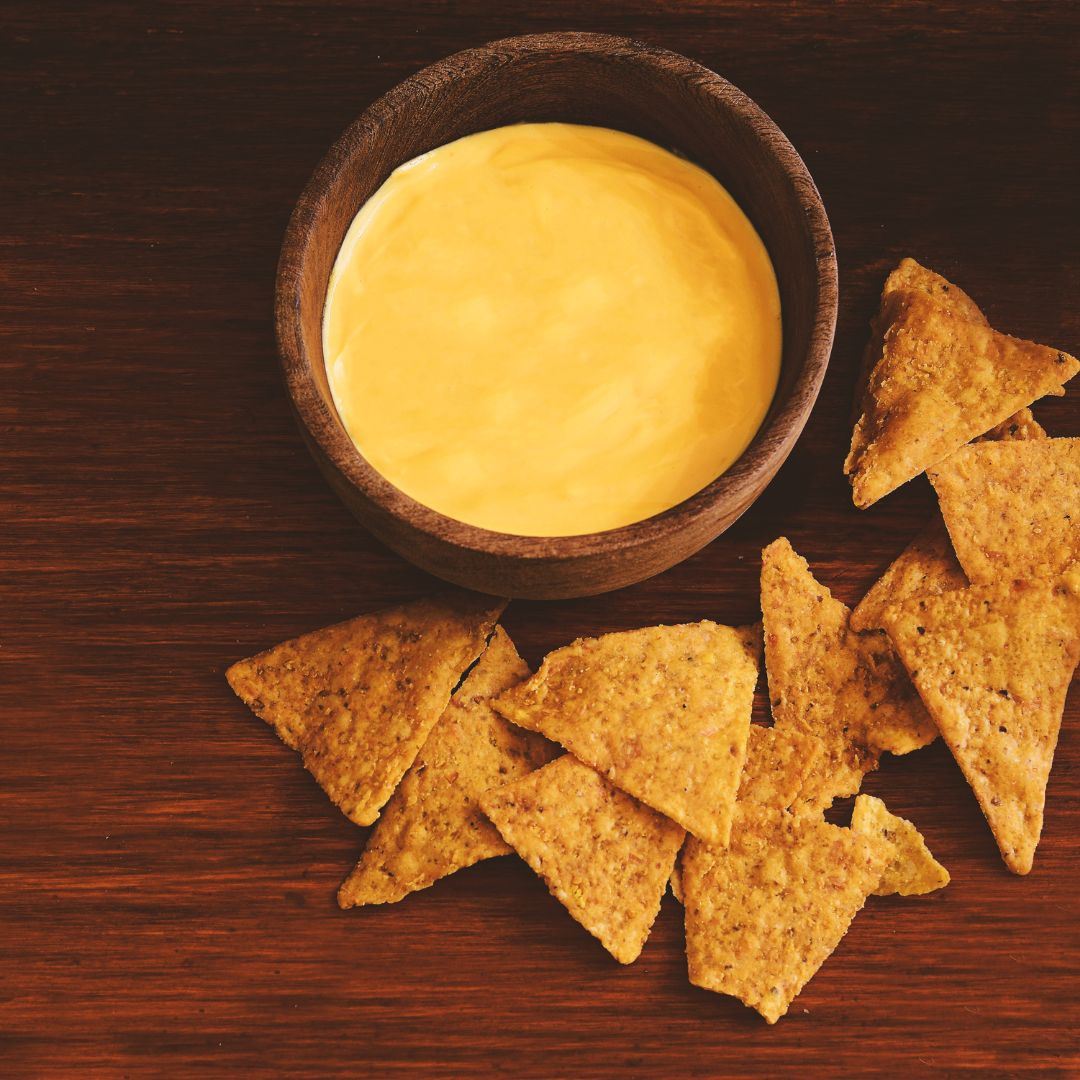
Understanding Calorie Counts in Cheese

Cheese often features in your diet, but understanding its calorie counts can significantly impact your health and weight management goals. When you're selecting cheese, it's essential to consider the variety, as calorie content can vary widely between different types.
A calorie comparison of common cheese types reveals that hard cheeses like Parmesan are often higher in calories, offering about 122 calories per ounce. In contrast, softer cheeses such as Brie contain fewer calories, around 95 calories per ounce. For those monitoring their calorie intake, Greek Feta Cheese is an ideal choice due to its lower calorie content and distinct flavor profile, making it perfect for adding a salty, tangy kick to salads without overloading on calories.
Knowing these differences is crucial, especially if you're advising others on dietary choices or managing your own calorie intake. For instance, incorporating lower-calorie cheeses into meals can help maintain a balanced diet without sacrificing flavor.
When discussing cheese options, emphasize not just the calorie content but also the nutritional benefits. Cheeses are good sources of calcium and protein, which are vital for bone and muscle health.
Encouraging a mindful approach to cheese consumption involves more than just calorie counting. It's about understanding the broader context of nutrition and how a particular cheese fits into an individual's dietary needs. This knowledge empowers you and those you serve to make informed choices that align with health objectives.
When guiding others, always tailor your advice to accommodate individual preferences and health requirements. This thoughtful consideration ensures that the dietary recommendations you provide aren't only health-conscious but also practical and sustainable in everyday life.
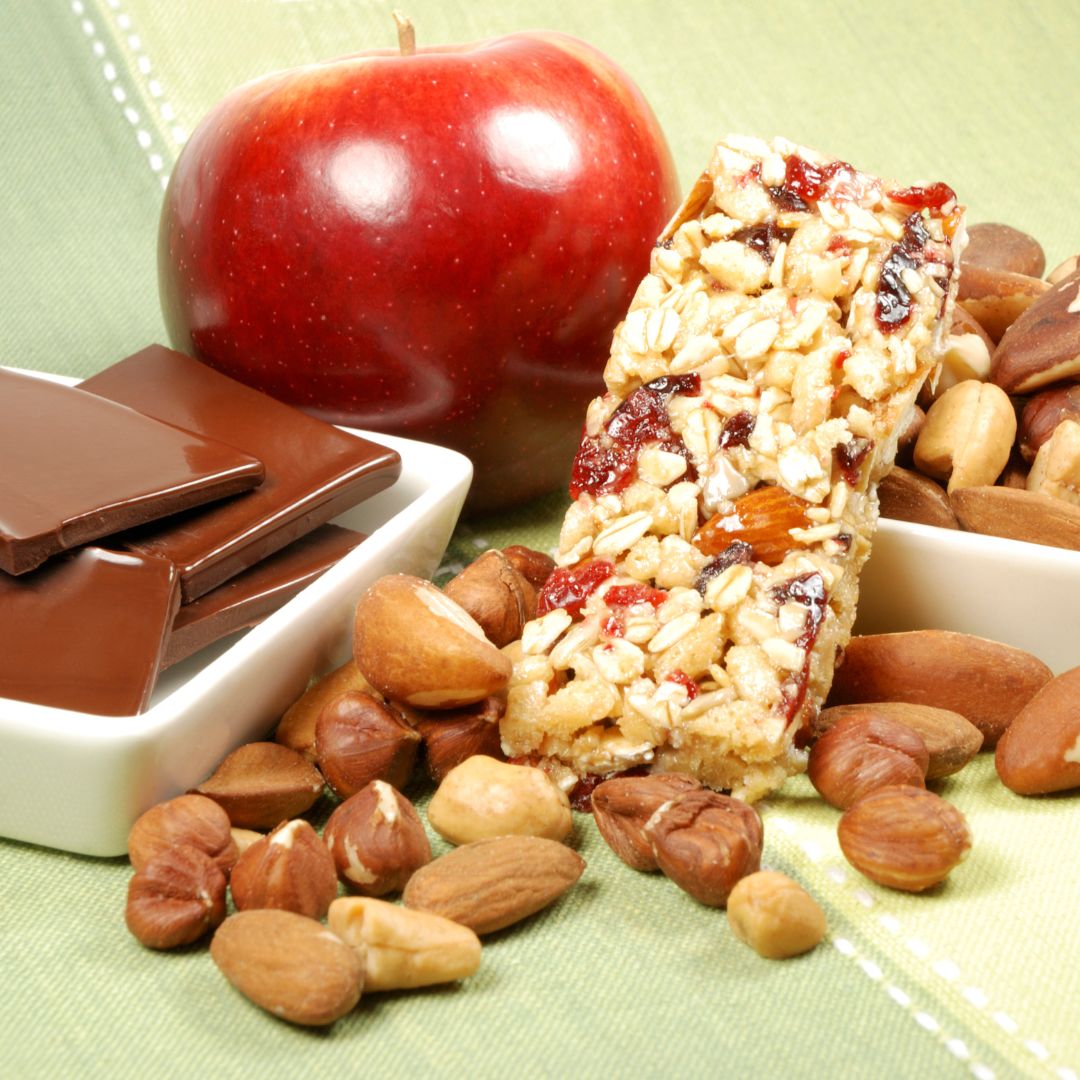
Top Low-Calorie Cheeses for Snacking
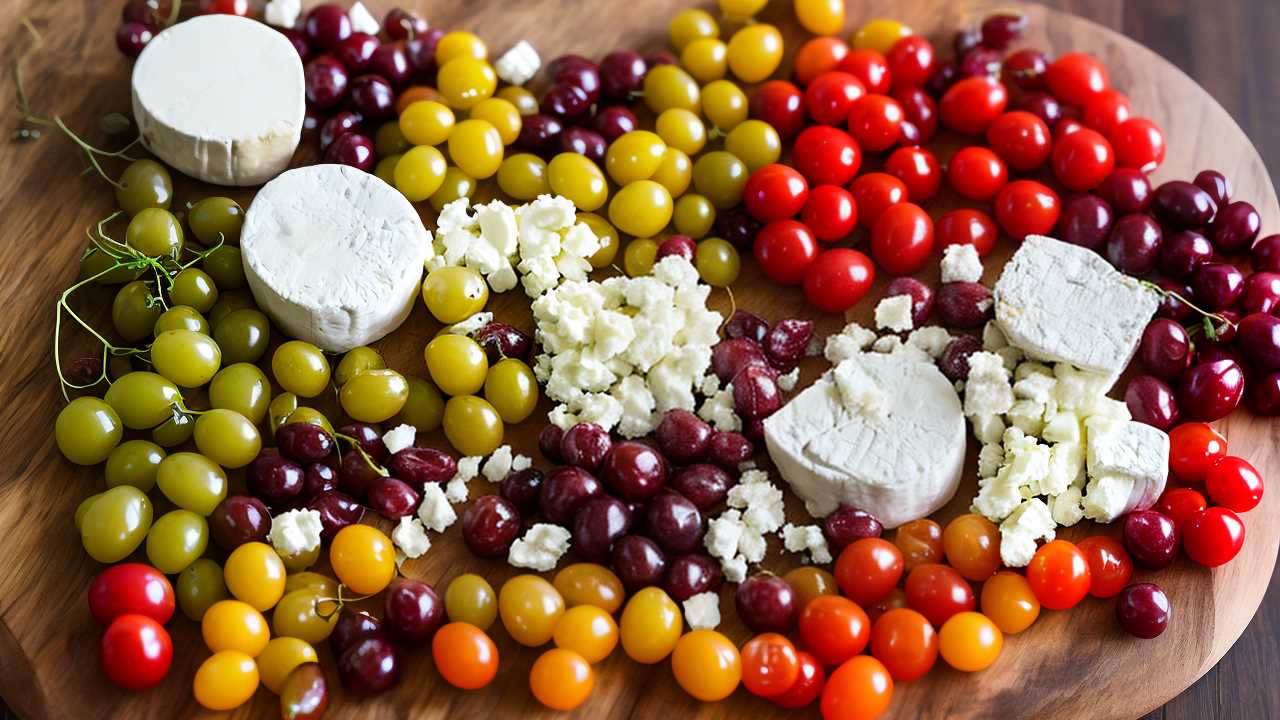
Consider incorporating these top low-calorie cheeses into your snack rotation to maintain both flavor and a health-conscious diet. When you're mindful of calorie intake but keen on indulging in savory treats, choosing the right cheese can make all the difference.
Here are some of the best cheese brands and options that you can enjoy without guilt:
- Cottage Cheese: A standout among low-calorie options, cottage cheese is versatile and rich in protein. Its creamy texture makes it perfect for pairing with fruits or as a spread on whole-grain crackers.
- Feta Cheese: Known for its crumbly texture and tangy taste, feta is typically lower in calories than many other cheeses. It's excellent in salads or sprinkled over roasted vegetables, providing a burst of flavor without too many calories.
- Mozzarella (Part-Skim): Opt for part-skim mozzarella for a cheese that's lower in fat but still melts beautifully. It's ideal for caprese salads or melted on whole-wheat pita bread with some tomato slices.
- Ricotta (Part-Skim): This cheese is wonderfully light and can be a great addition to a healthy snack plate. Combine it with a drizzle of honey and a sprinkle of cinnamon for a delightful treat.
Incorporating these cheeses into healthy cheese snack ideas like the Veggie-Stuffed Cheese Wraps can help maintain a balanced diet while still enjoying the rich flavors of cheese.
When considering cheese pairing suggestions, think about complementing textures and flavors that enhance your snacking experience while keeping health in mind.
For instance:
- Pair cottage cheese with pineapple for a sweet and savory combination.
- Enjoy feta with watermelon for a refreshing summer snack.
- Mozzarella pairs beautifully with basil and tomatoes for a classic touch.
- Ricotta can be enhanced with berries or figs for a naturally sweet contrast.

Health Benefits of Choosing Low-Calorie Cheese

Opting for low-calorie cheeses can significantly enhance your diet's nutritional profile while still satisfying your cravings for rich, creamy flavors. When you choose lower-calorie options, you're not just cutting calories; you're often making a choice that benefits your overall health. These cheeses tend to have a favorable nutritional comparison to their full-fat counterparts, often containing less saturated fat and cholesterol.
Low-calorie cheeses provide key nutrients like calcium and protein without the excess calories, making them an excellent choice for weight management or maintenance. They also offer varying flavor profiles, which means you're likely to find one that not only meets your dietary goals but also pleases your palate.
Here's a quick nutritional comparison of popular low-calorie cheeses:
| Cheese Type | Calories per Serving | Key Nutrients |
|---|---|---|
| Cottage Cheese | 90 (1/2 cup) | High in protein |
| Mozzarella | 70 (1 oz) | Rich in calcium |
| Feta | 80 (1 oz) | Lower in fat |
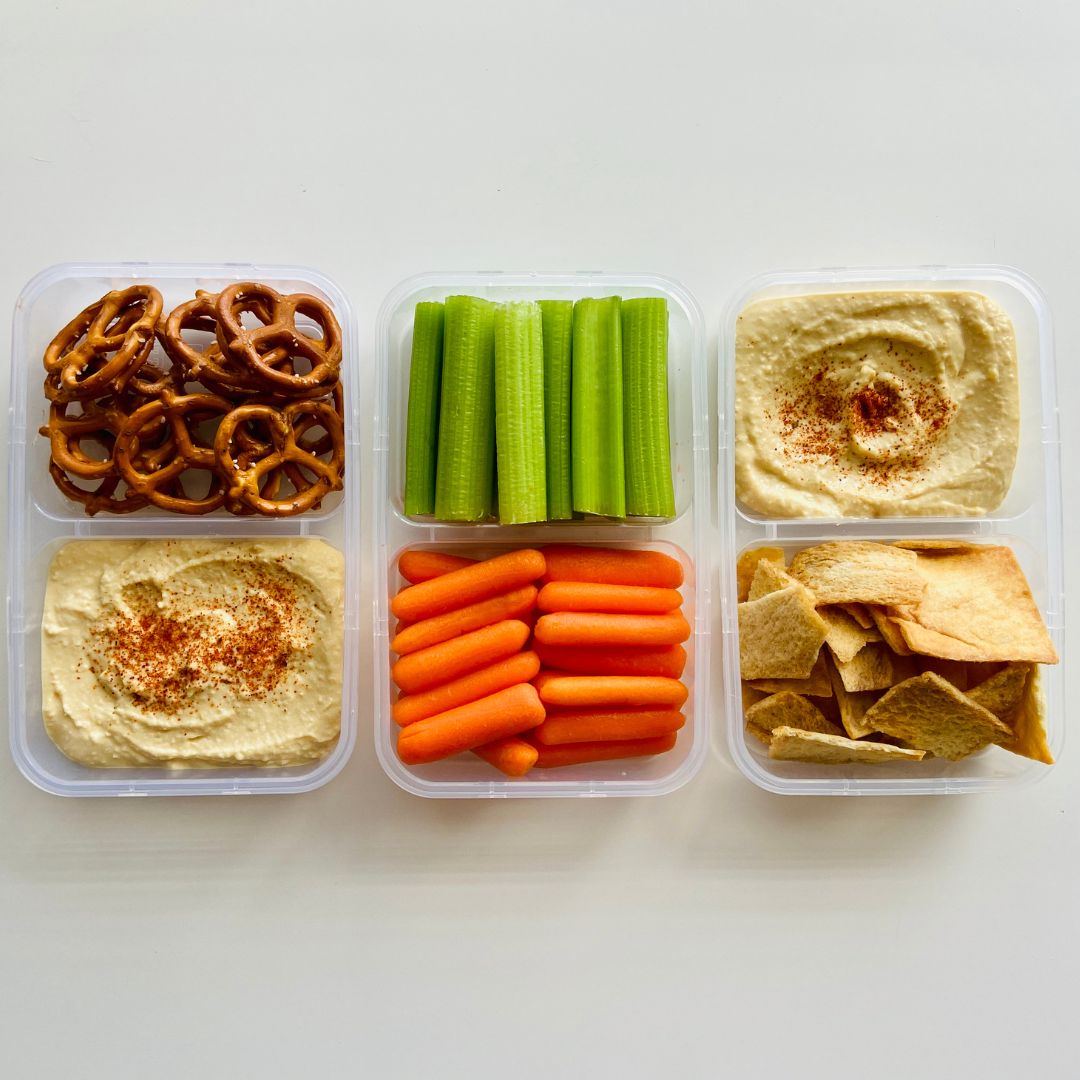
Creative Ways to Snack on Low-Calorie Cheese
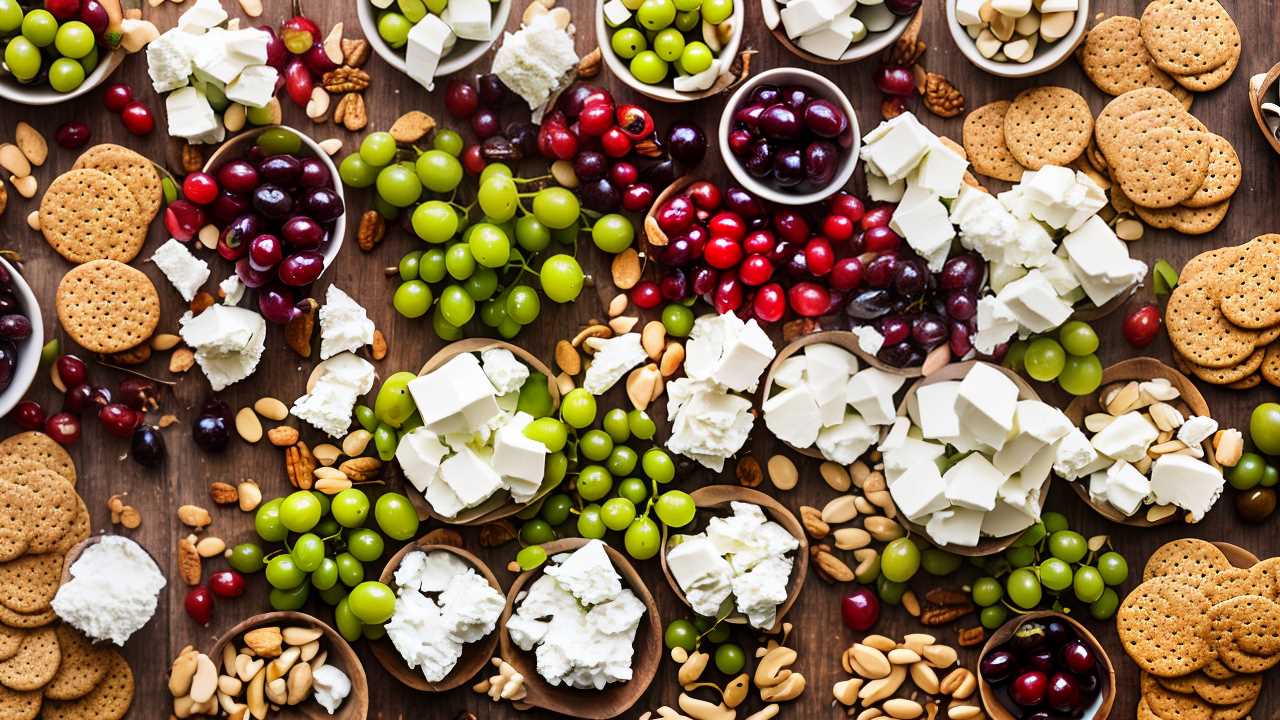
If you're aiming to enhance your snack time with healthier choices, incorporating low-calorie cheeses into your routine offers both flavor and nutritional benefits. With a bit of creativity, you can transform these cheeses into appealing and nutritious snacks that not only satisfy your cravings but also contribute to a balanced diet.
One excellent way to enjoy these cheeses is through thoughtful cheese pairings. Pairing low-calorie cheese with fresh fruits like apples or pears can enhance the natural flavors of both the cheese and the fruit, providing a sweet and savory experience that's hard to resist. For a crunchier alternative, you might try combining sliced radishes or cucumbers with a soft, spreadable low-calorie cheese. This combination not only offers a refreshing crunch but also adds a delightful contrast in textures.
To elevate this further, consider incorporating some of the creative combinations suggested, such as pairing cheeses with unexpected items like chocolate or nuts, to add a layer of sophistication and taste to your snacks.
When it comes to snack presentation, remember that the way you present your snacks can significantly affect how enjoyable they are. Here are a few ideas to make your cheese-centered snacks more appealing:
- Skewer Cubes: Alternate pieces of low-calorie cheese with cherry tomatoes and basil leaves on skewers for a visually appealing and easy-to-eat treat.
- Cheese Rolls: Spread low-calorie cream cheese on whole grain wraps, add some spinach or arugula, and roll them up for a nutritious snack.
- Stuffed Peppers: Small bell peppers can be filled with a mixture of low-calorie cheese and herbs, then broiled for a warm, satisfying snack.
- Dip Trio: Serve a trio of low-calorie cheese dips – perhaps a herbed cheese, a spicy pepper blend, and a classic garlic version – with a variety of whole-grain crackers.
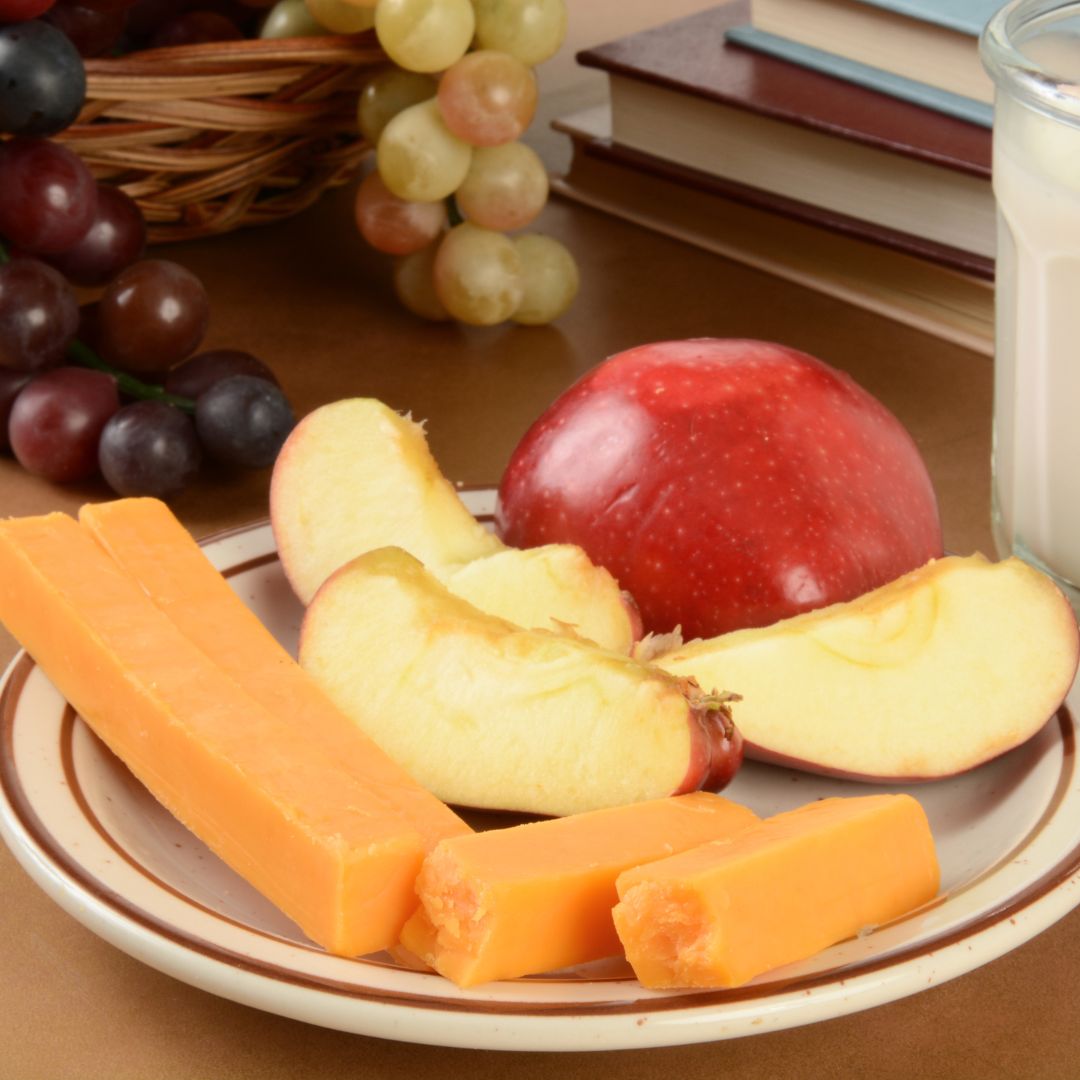
Shopping Tips for Low-Calorie Cheese
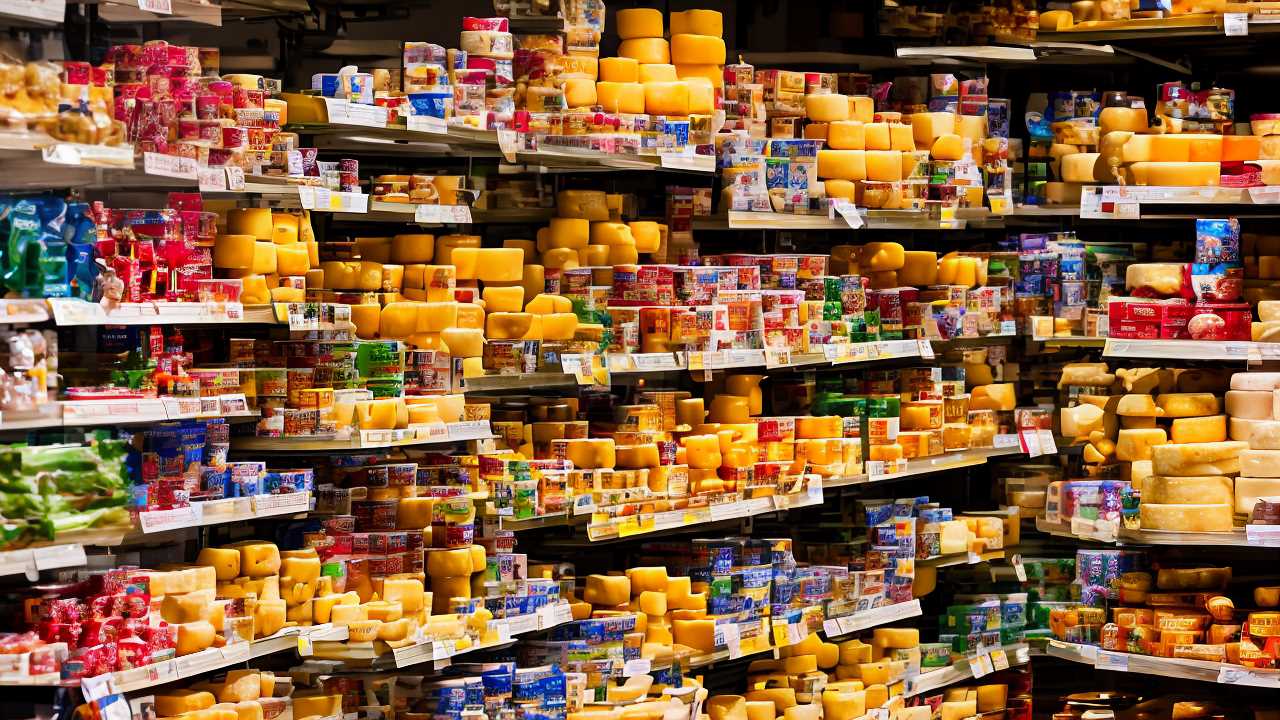
When shopping for low-calorie cheese, you'll want to prioritize options that offer the best nutritional value without compromising on taste. Start by conducting brand comparisons. Not all cheeses are created equal, even within the same category of "low-calorie." Some brands might use additives to reduce calories, which can impact the overall health benefits. Look for brands that use natural ingredients and offer transparency about their production processes.
It's also crucial to consider portion control when selecting your cheese. Even low-calorie options can contribute significantly to your daily caloric intake if consumed in large amounts. Check the serving sizes on the packaging and compare them across different brands to ensure you're getting a genuine low-calorie product. Remember, the goal is to enjoy your snack without overindulging.
Be mindful of the types of cheese you select. Soft cheeses like cottage cheese or ricotta can be lower in calories compared to harder cheeses like cheddar. However, the texture and flavor profiles vary, so choose what best fits your taste preferences and dietary needs.
Reading nutritional labels is essential. Pay close attention to the calorie count, fat content, and sodium levels. These factors play a significant role in the overall healthiness of the cheese. Opt for options that are lower in fat and sodium, which are better for your heart health and weight management.
Lastly, don't hesitate to ask store staff for recommendations or additional nutritional information. They can often provide insights into the most popular and health-conscious choices among consumers looking to maintain a balanced diet.

Frequently Asked Questions
Can Low-Calorie Cheese Help in Managing Lactose Intolerance?
Low-calorie cheese isn't specifically designed to manage lactose intolerance.
However, you'll find that harder, aged cheeses naturally contain less lactose, potentially easing digestion issues.
Exploring cheese alternatives like soy or almond cheese could also be beneficial, as they're typically lactose-free.
Does Low-Calorie Cheese Contain Artificial Preservatives?
You might wonder if your guilt-free snack harbors hidden foes like artificial preservatives.
Typically, low-calorie cheeses don't contain artificial preservatives, focusing instead on maintaining nutritional benefits.
When comparing the taste to full-fat counterparts, they often hold their own, offering a commendable balance of flavor and health.
How Does Aging Affect the Calorie Content of Cheese?
Aging cheese typically doesn't change its calorie content significantly, but it does affect flavor development, texture, and nutritional impact.
As cheese ages, its texture becomes denser and flavors more concentrated, which might make you use less of it per serving, potentially reducing calorie intake.
However, the aging process itself doesn't decrease the calories.
You'll need to choose your cheese wisely based on its initial calorie content if you're watching your diet.
Are There Vegan Options for Low-Calorie Cheese?
Yes, you'll find that the market is blossoming with vegan options for low-calorie cheese.
Like sowing seeds in fertile soil, opting for these alternatives can yield substantial nutritional benefits without sacrificing flavor.
These vegan cheeses are crafted from nuts, soy, or tapioca, offering a range of flavors and textures.
Focused on your health, they're a smart choice to nourish those you care for, ensuring everyone can enjoy delicious, guilt-free snacks.
Can Low-Calorie Cheese Be Frozen for Long-Term Storage?
Yes, you can freeze low-calorie cheese for long-term storage by using proper freezing techniques.
Firstly, wrap the cheese tightly in plastic wrap or aluminum foil to protect its texture and flavor.
For optimal results, store it in airtight containers or freezer bags.
Remember, thawed cheese might've a slightly altered texture, so it's best used in cooked dishes.
Following these storage tips ensures you maintain its nutritional quality while extending its shelf life.

Conclusion
So, you've explored the world of low-calorie cheeses, perfect for guilt-free snacking. Remember, opting for cheeses like feta or mozzarella not only cuts down on calories but can also reduce your saturated fat intake by up to 30% compared to richer cheeses. Keep your snacks lively and health-conscious by incorporating these cheeses into your diet. When shopping, choose quality over quantity, ensuring you get the best taste and nutritional benefits. Happy snacking on your cheese adventure!

